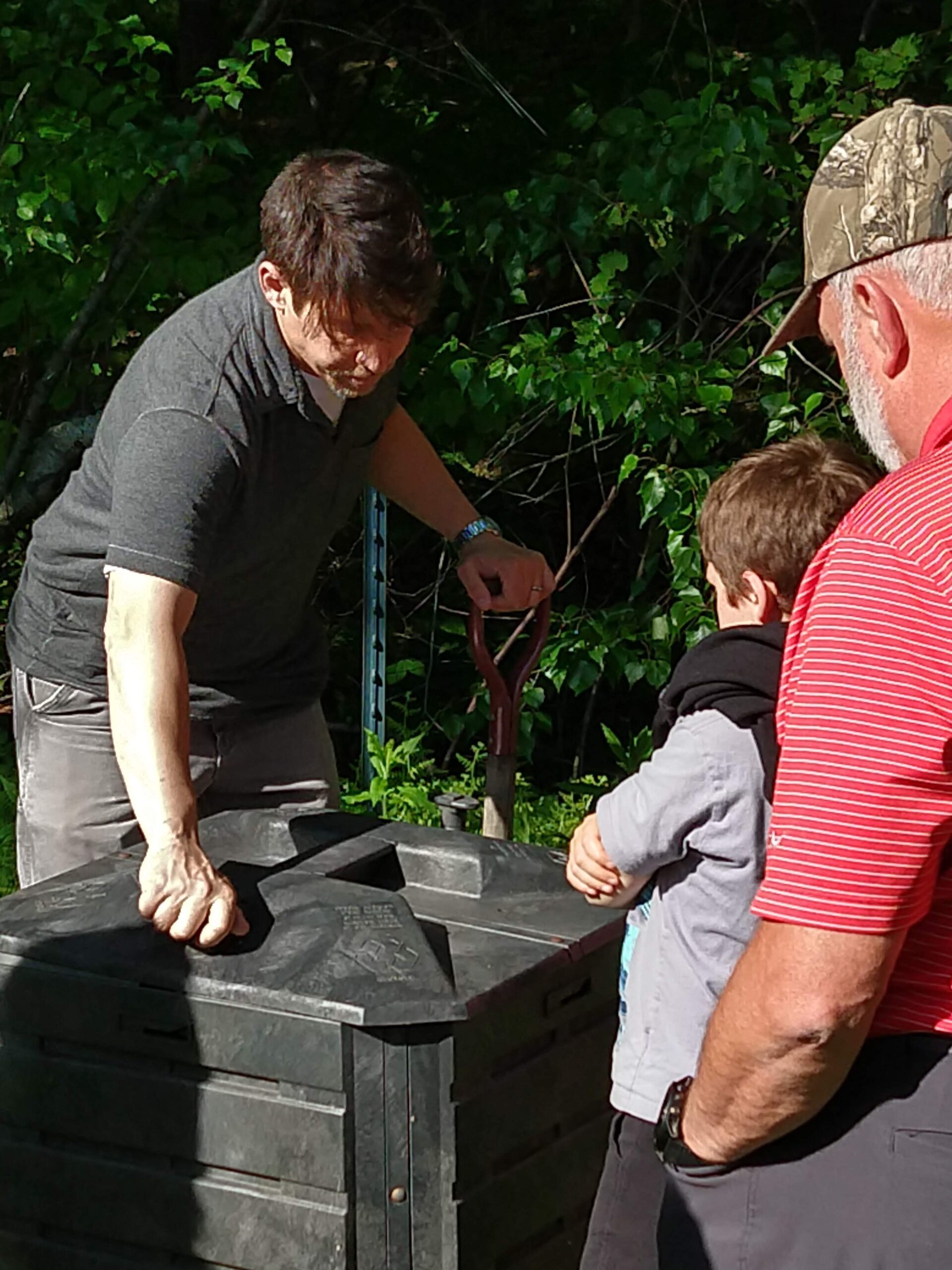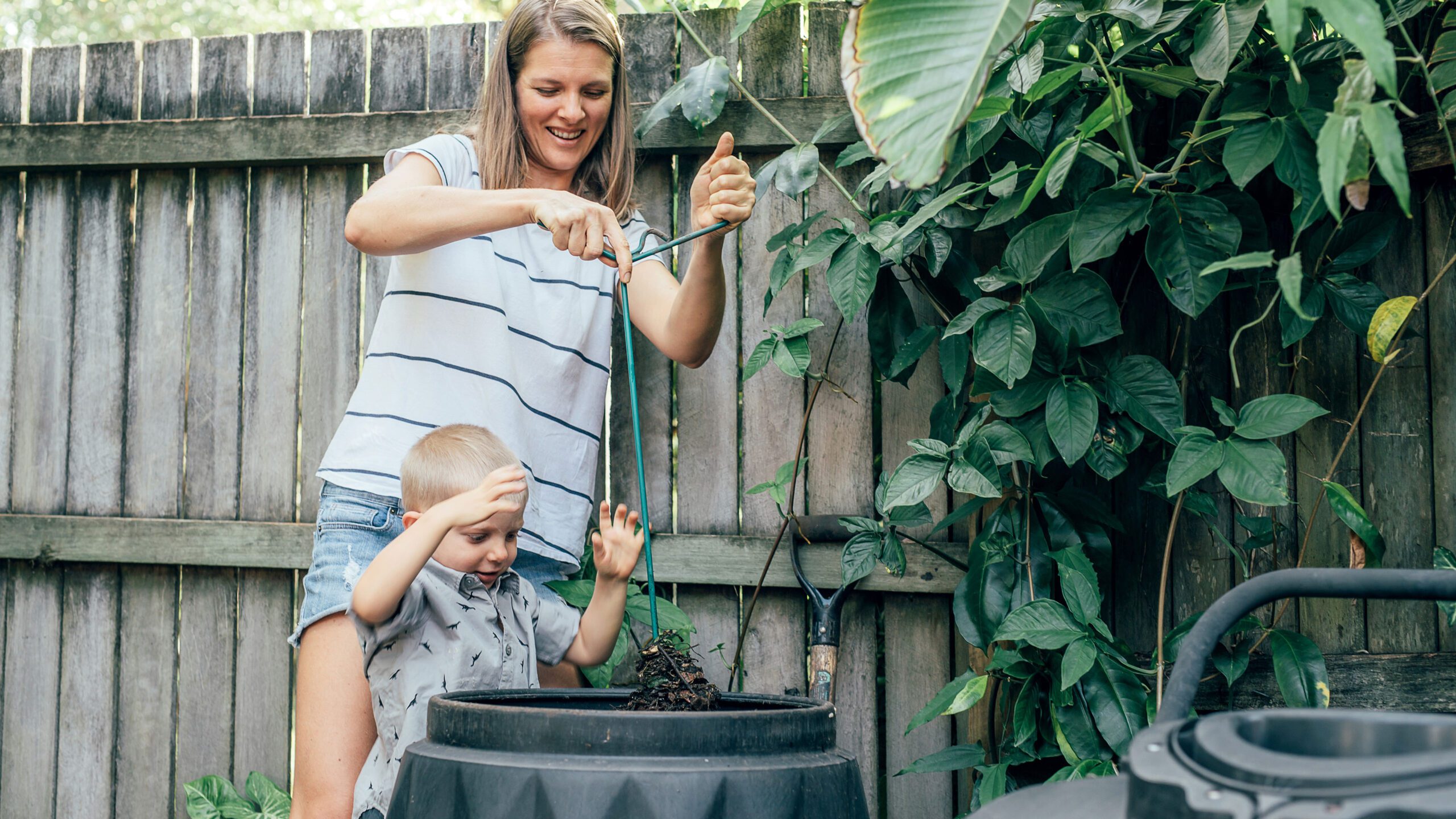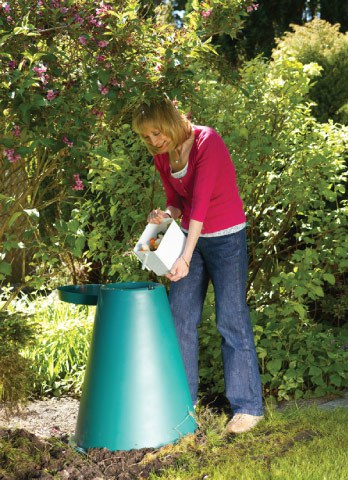LATE OPENING NOTICE: All CSWD facilities that are regularly open on Thursday, Nov. 6th will not open until 11AM due to a mandatory staff training. Please plan ahead.
Backyard Composting
Composting is the process of turning organic matter—like food scraps, lawn clippings, and leaves—into nutrient-rich soil. If you like to garden, or want to give your lawn some natural love, then home composting may be a great fit for you.
Don’t have a big backyard? You don’t need a lot of space (or even a yard!) to create high-quality soil at home. You can use almost any kind of container, as long as you provide the right mix of materials.
Advantages:
- Manages almost all of your food scraps (except for meat, bones, and dairy)
- Produces nutrient-rich compost to improve the soil in your lawn or garden
- Can break down virtually any quantity of food and yard waste (depending on how much space you have)
Possible disadvantages:
- Takes up space in your yard
- Can’t handle meat, bones, dairy products, or pet waste
- You need to have leaves or straw or another “carbon source” to balance your mix



